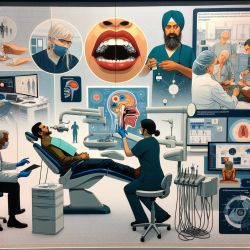Introduction
In the ever-evolving field of speech-language pathology, staying informed about the latest research and applying data-driven insights is crucial for improving outcomes, especially for children with rare diseases. The 8th European Conference on Rare Diseases & Orphan Products (ECRD 2016) presents valuable findings that can enhance your practice. This blog will explore how these insights can be implemented in speech-language pathology, encouraging practitioners to delve deeper into the research and apply these findings to their work.
Understanding the Challenges of Rare Diseases
Rare diseases present unique challenges in healthcare, often due to their low prevalence and the limited availability of treatment options. For speech-language pathologists, these challenges are compounded by the need to tailor interventions to the specific needs of each child. The ECRD 2016 highlighted several key areas where improvements can be made, including the integration of social preferences in treatment planning and the importance of early intervention.
Data-Driven Insights from ECRD 2016
The conference emphasized the importance of systematic health technology assessments (HTAs) and the role of social preferences in evaluating medical interventions for rare disorders. For speech-language pathologists, this means considering not only the clinical effectiveness of interventions but also their social value and impact on the child's quality of life. By incorporating these factors into treatment planning, practitioners can ensure that their interventions are both effective and meaningful for the child and their family.
Implementing Research Findings in Practice
To implement these insights, speech-language pathologists can start by:
- Conducting comprehensive assessments that include both clinical and social factors.
- Collaborating with multidisciplinary teams to ensure holistic care for children with rare diseases.
- Engaging with families to understand their preferences and priorities, ensuring that interventions align with their goals.
- Continuously evaluating the impact of interventions and adjusting strategies based on data-driven outcomes.
Encouraging Further Research
The ECRD 2016 also highlighted the need for ongoing research into rare diseases and their treatment. Speech-language pathologists are encouraged to participate in research initiatives, contribute to data collection, and stay informed about new developments in the field. By doing so, practitioners can help advance the understanding of rare diseases and improve treatment outcomes for children.
Conclusion
By leveraging the insights from the ECRD 2016, speech-language pathologists can enhance their practice and contribute to better outcomes for children with rare diseases. Implementing data-driven decisions and engaging in further research will ensure that interventions are both effective and aligned with the needs of the child and their family. To read the original research paper, please follow this link: 8th European Conference on Rare Diseases & Orphan Products (ECRD 2016).










